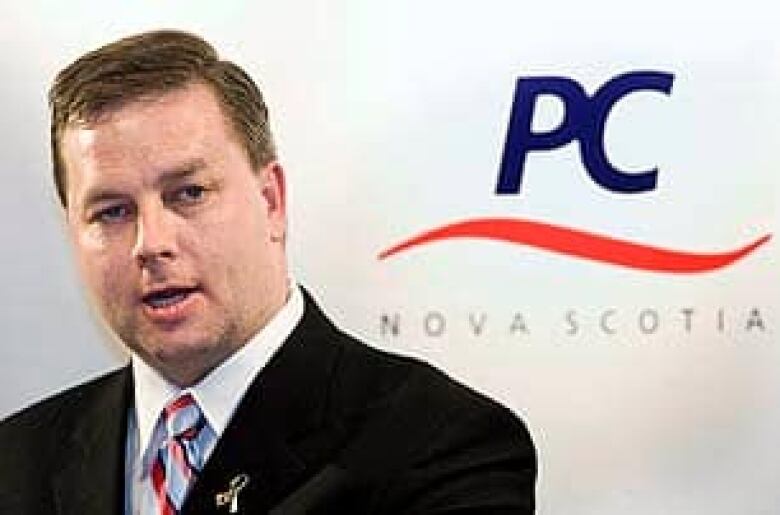PC Leader: Rodney MacDonald
Rodney MacDonald can add another job to his resume: tightrope walker.
As leader of a minority Progressive Conservative government, Nova Scotia's 26th premier has faced the delicate balancing act of trying to please party members and maintain the support of the opposition parties needed to stay in power.

MacDonald lost his balance a number of times, fending off embarrassing incidents and missteps involving his cabinet ministers and government departments. Still, he managed to hang on to pass three budgets, ensuring his government's survival.
But can he hold on to power this time?
MacDonald is using the same playbook as in 2006, when, as newly minted leader of the Progressive Conservative Party of Nova Scotia, he made a series of spending announcements, brought in a budget, and then called an election four days later.
He managed to keep his party in power, though he didn't win the majority he was hoping for and lost two precious seats in the election.
And that was during relatively good economic times.
Tough financial reality
Now, there's a worldwide recession, and a number of companies in the province have shut down or laid off workers. With a drastic downturn in the economy and no upswing in offshore oil and gas revenue, Nova Scotia is facing tough financial times and the burden of a $12-billion debt.
MacDonald, 37, paved the way to this election with what he calls a "$2-billion economic stimulus package." The plan, which includes mostly regular infrastructure spending and money from the federal government, promises schools and roads to benefit future generations and jobs for the present one. But both the Liberals and NDP have accused the Tories of being slow to react to the province's economic troubles.
If a February poll of voters is any indication, MacDonald faces an electorate that may be willing to give another party leader a chance at the high wire.
A Corporate Research Associates (CRA) poll released in March showed the NDP ahead with 36 per cent support of decided voters, compared with 31 per cent for the Liberals and 30 per cent for the Tories. About 37 per cent were undecided. The poll is considered accurate to within 3.5 percentage points, 19 times out of 20.
Progressive Conservatives have seen their popularity slide since MacDonald was elected leader in February 2006 when, at the age of 34, he became the youngest premier in Canada. Around that time, he was favoured by 36 per cent of respondents in a CRA poll.
Tumultous years in power
Since the June 2006 provincial election, MacDonald has had to answer questions about a number of missteps, gaffes and scandals.
Just weeks after running an election campaign with the motto, "Our home, our families, our future," he confirmed that he had separated from his wife Lori and moved back in with his parents in Mabou. He and his wife have since reunited.
Politically, there was the government's flip-flop on the issue of Sunday shopping, the collapse of a business mentorship program for immigrants, the crash of a government vehicle driven by a cabinet minister's son, and the fender-bender of cabinet minister Ernie Fage, who was turfed from the Tory caucus after being convicted in December 2007 of leaving the scene of an accident.
On the plus side, MacDonald did settle a decades-old dispute over the offshore offset, which saw the federal government hand over millions in offshore oil and gas royalties.
The past few years have been a tumultuous time for the premier from Cape Breton.
But he's no stranger to change.
MacDonald, born in Inverness and raised in Mabou, was a gym teacher and professional fiddler before making the leap into politics.
He earned a Bachelor of Science in physical education from St. Francis Xavier University in Antigonish and taught for the Strait Regional School Board and at the Mi'kmawey school at Chapel Island. As a fiddler, he appeared on stages around eastern Canada and the United States. In 1998, he received two nominations at the East Coast Music Awards.
MacDonald was elected as an MLA, representing the riding ofInverness, in 1999, and re-elected in 2003 and 2006. He held several portfolios, including health promotion, immigration, and tourism, before becoming leader of the PC party.












_(720p).jpg)


 OFFICIAL HD MUSIC VIDEO.jpg)
.jpg)



























































































